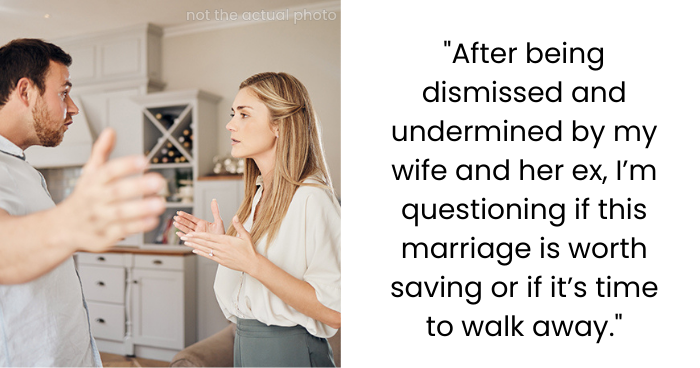AITA for Considering Divorce After My Wife Defended Her Ex Over Me?
When there are kids and ex-partners, marriage often becomes a juggling act. This guy’s tension with his wife’s ex is so great that he is contemplating his marriage. But Jake’s biological father had just re-surfaced after years of no contact to chip away at the relatively new step-father role of 9-year-old Jake’s on-again off-again stepparent.
Jake himself, in fact, found his wife warm in her reaction when he lied whose idea was it for the birthday gift to his mother giving credit to the stepfather, who actually did the thoughtful act in the first place dug her heels in and downplayed his frustration. His girlfriend’s response, however, which included insulting him by calling him a “needy man baby”, made him feel like she was being disrespectful, neglectful and that he didn’t want to be in a relationship anymore.
Blended families often bring new dynamics, but when an ex-partner is in the mix, the sparks fly and those questions become stark about trust and boundaries and respect.
Sometimes the most complicated relationships in blended families are those of adults

Just like in this family, where the stepdad had difficulties dealing with the stepson’s biological dad
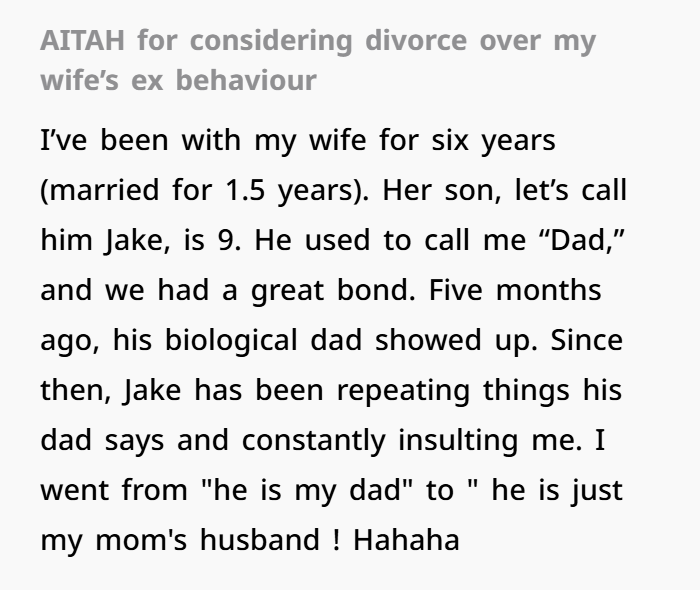
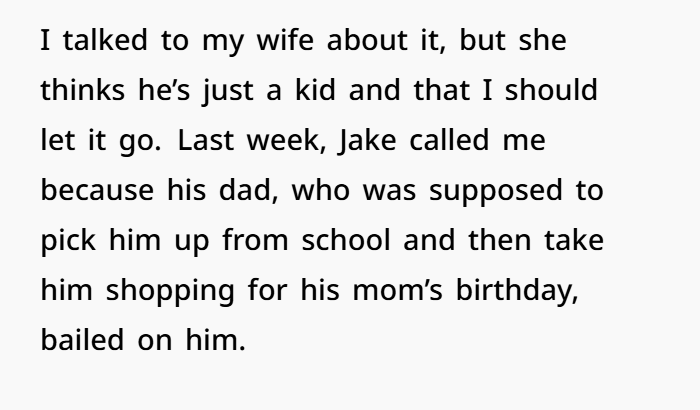

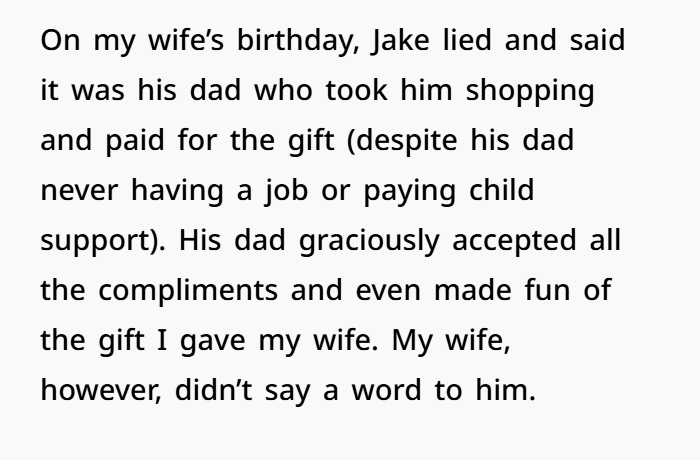
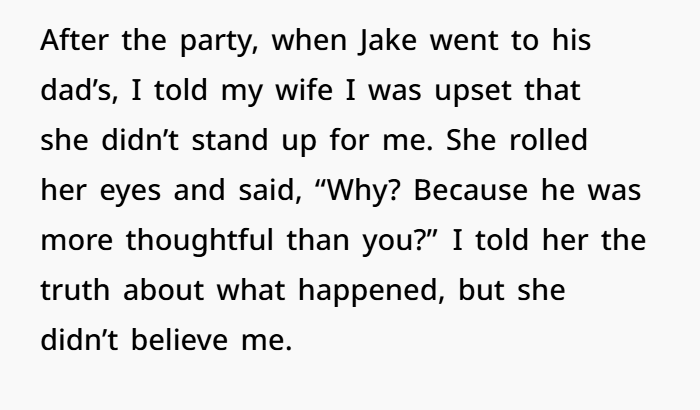
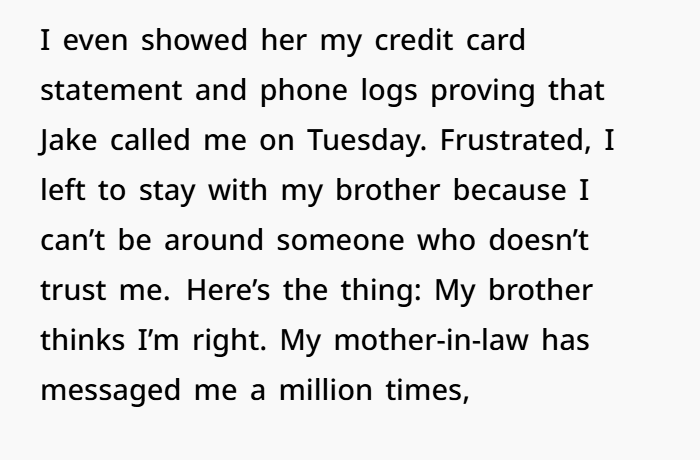
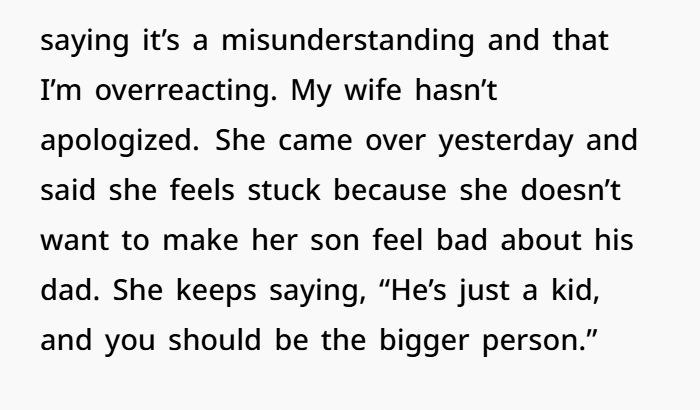
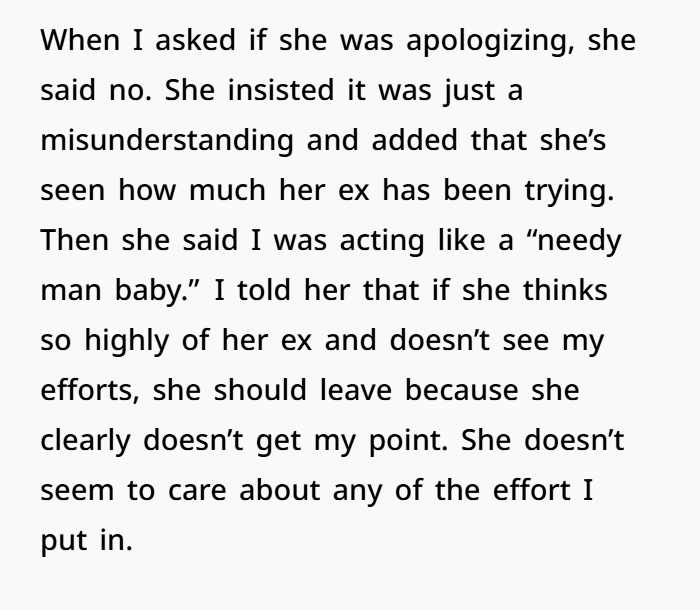
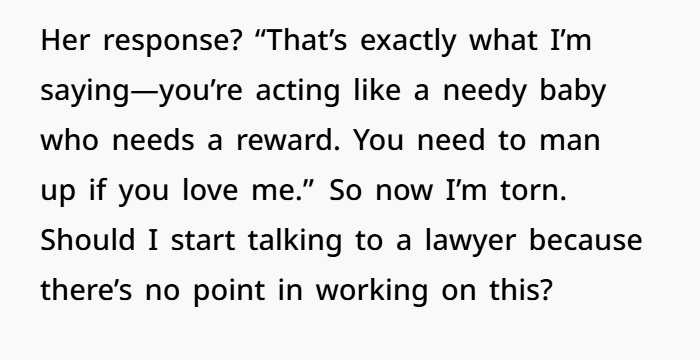
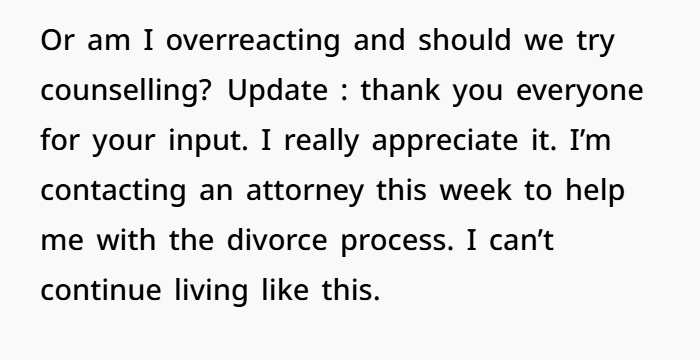
Navigating Blended Family Dynamics and Respect in Marriage
1. The Role of a Stepparent in Blended Families
Stepparenting is a thankless task that demands patience, understanding, and investment in someone else’s son. However, the Stepfamily Foundation believes that effective stepparenting is rooted in respect and open communication between stepfamily members. That said, when a biological parent undermines a stepparent, this can be confusing and create tension for the child — which can also be an emotional bonfire for the stepparent.
Here, Jake’s father returns, in part, to test the relationship Jake has with his stepfather. Jake is stuck in between—loyal to his dad and his stepdad—so it makes sense that he would start repeating the negative things his dad said about his stepdad and even downplaying everything his stepdad has done.
2. The Wife’s Role in Supporting Her Spouse
It is important to prioritize a child’s mental health, but not at the expense of minimizing a partner’s emotions or contributions. The husband feels that her wife never stood up for him and that all he has achieved in life is meaningless. So rather than confronting her son about his lies or turning a blind eye to her ex, she has downplayed her husband’s concerns, bestowing her center of the scale to neutrality when she should have been on one side supporting her husband in his insistence he does not want frequent overnight guests.
THE GOTT MAN INSTITUTE Relationship experts at The Gottman Institute say that marriages are built on trust and loyalty. When one partner starts to ask for emotional support, and the other fails to provide it, the partner who does not get the emotional support may begin to feel bewildered about the relativities of the relationship.
3. Emotional Manipulation and Gaslighting
The wife characters comments — like calling her spouse a — needy man baby — are dismissive and insulting, and the fact they steer the conversation away from what concern her spouse is bothering about is showing the belittling tactic against her spouse in the relationship. This dismissal not only minimizes how he is feeling, but it diverts some of the blame from the things she has done. That is just emotionally manipulative, it makes him feel responsible rather than problematic.
Gaslighting — belittling or dismissing a person’s valid feelings — can undermine trust and self-confidence, which breeds resentment over the long haul. In this context, the husband’s frustrations are entirely justified, as he feels as if all his efforts to provide for his wife and stepson are taken for granted.
4. Evaluating Options: Divorce or Counseling?
The husband must weigh in with careful consideration the likelihood of resolving those issues, versus irreconcilable differences before making a decision.
- Counseling: Family or couples therapy could provide a neutral space to address issues like co-parenting dynamics, the wife’s dismissiveness, and the husband’s feelings of being undervalued. Therapists from The American Association for Marriage and Family Therapy (AAMFT) often recommend counseling for blended families to help navigate the unique challenges they face.
- Divorce: If the wife remains unwilling to acknowledge her husband’s concerns or work toward a solution, continuing the marriage may lead to ongoing emotional harm. Consulting a lawyer to understand the legal process and implications is a reasonable step if reconciliation feels impossible.
5. Setting Boundaries with the Ex-Partner
Setting some boundaries with Jake biological father is take big no if you are to carry on with the relationship. This includes not allowing him to influence Jake and not stepping on the step dad! It is also important that the wife backs up these boundaries, because without that, a husband can still feel disrespected and not included.
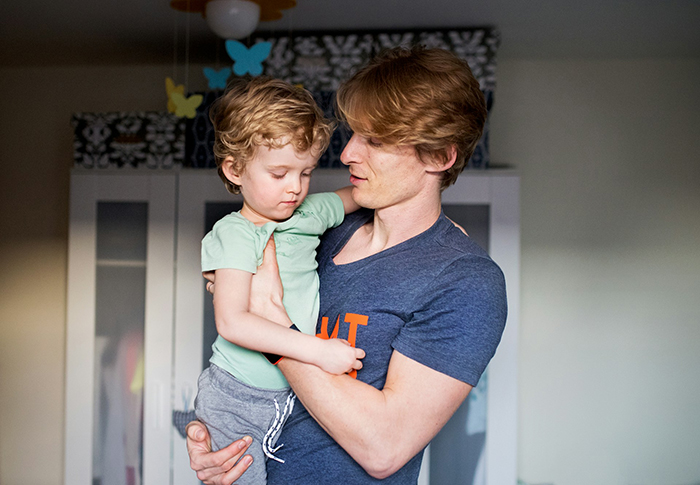
Some readers told the stepdad that he’s not in the wrong here and that he needs to leave
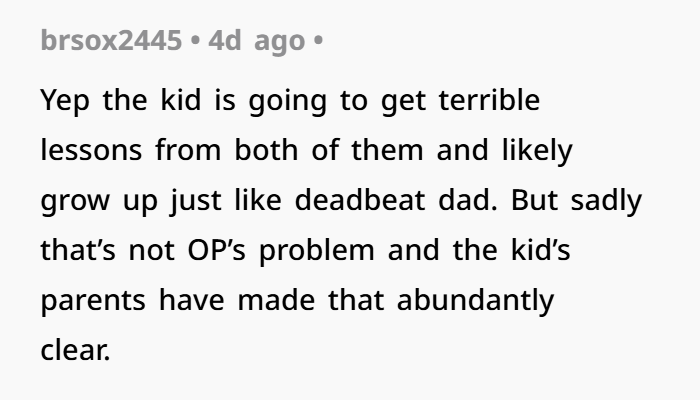



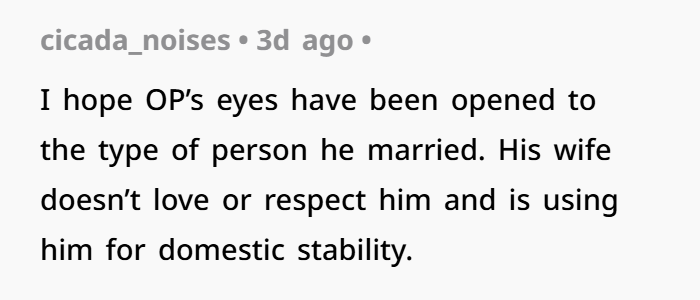
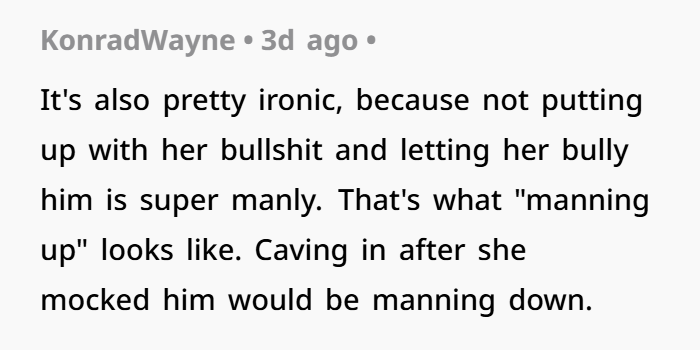
The husband being frustrated and emotionally tormented by his wife’s actions is a valid reason or cause to even think of divorce. The mating scheme formed a sustainable framework with him offering meaningful objectives in return for her affection, until his wife started belittling him and viewing him as a stepping stone to his accomplishments. Counseling may allow for the issues to be resolved but again, this is only if both parties agree to work on the underlying problems.
Blended families can work with a foundation of respect, communication, and black-and-white boundaries—but when one partner feels unsupported, the relationship begins to falter. Whether through therapy or separation, the choice to protect his emotional interest is the right move to make.

